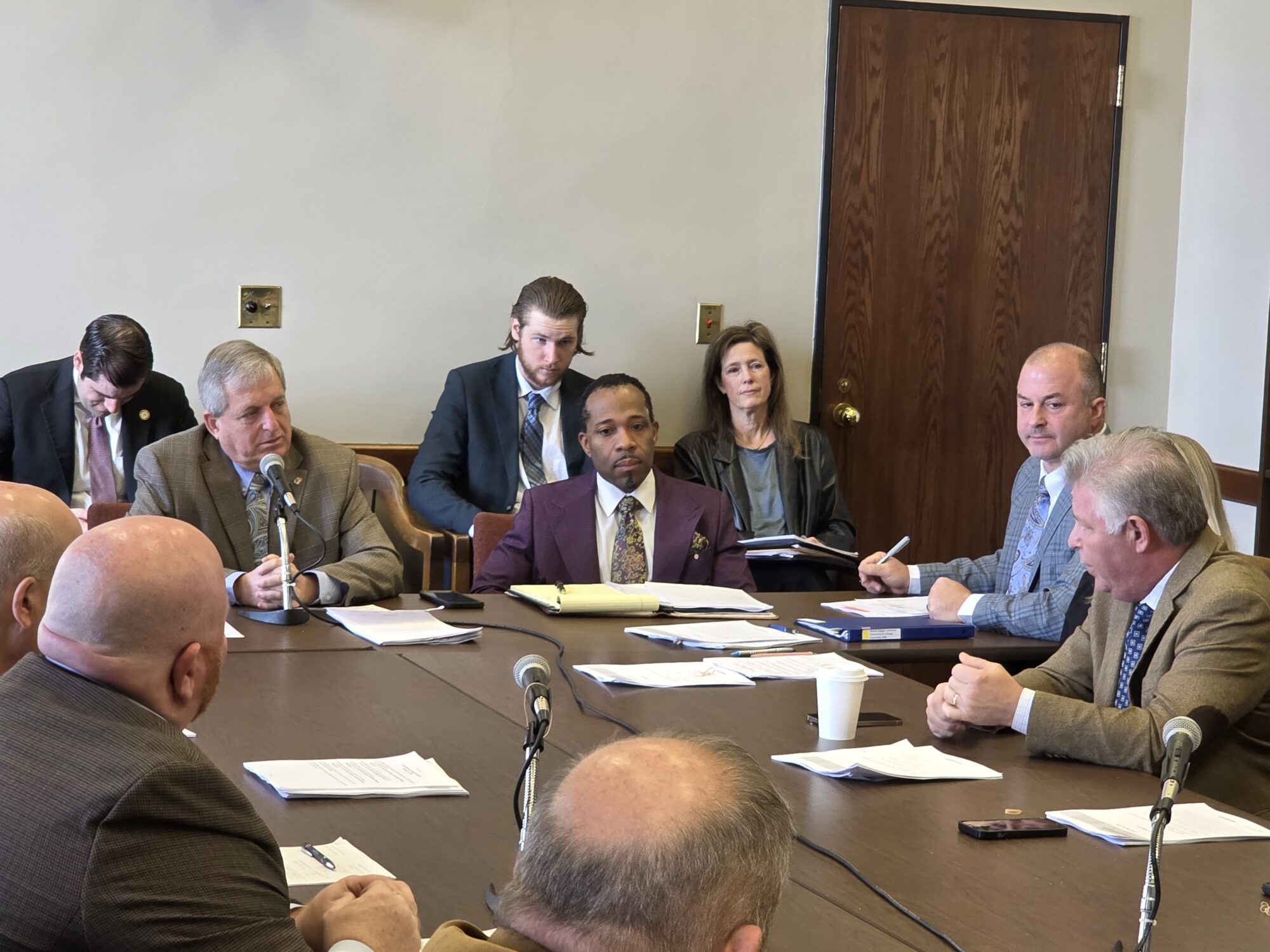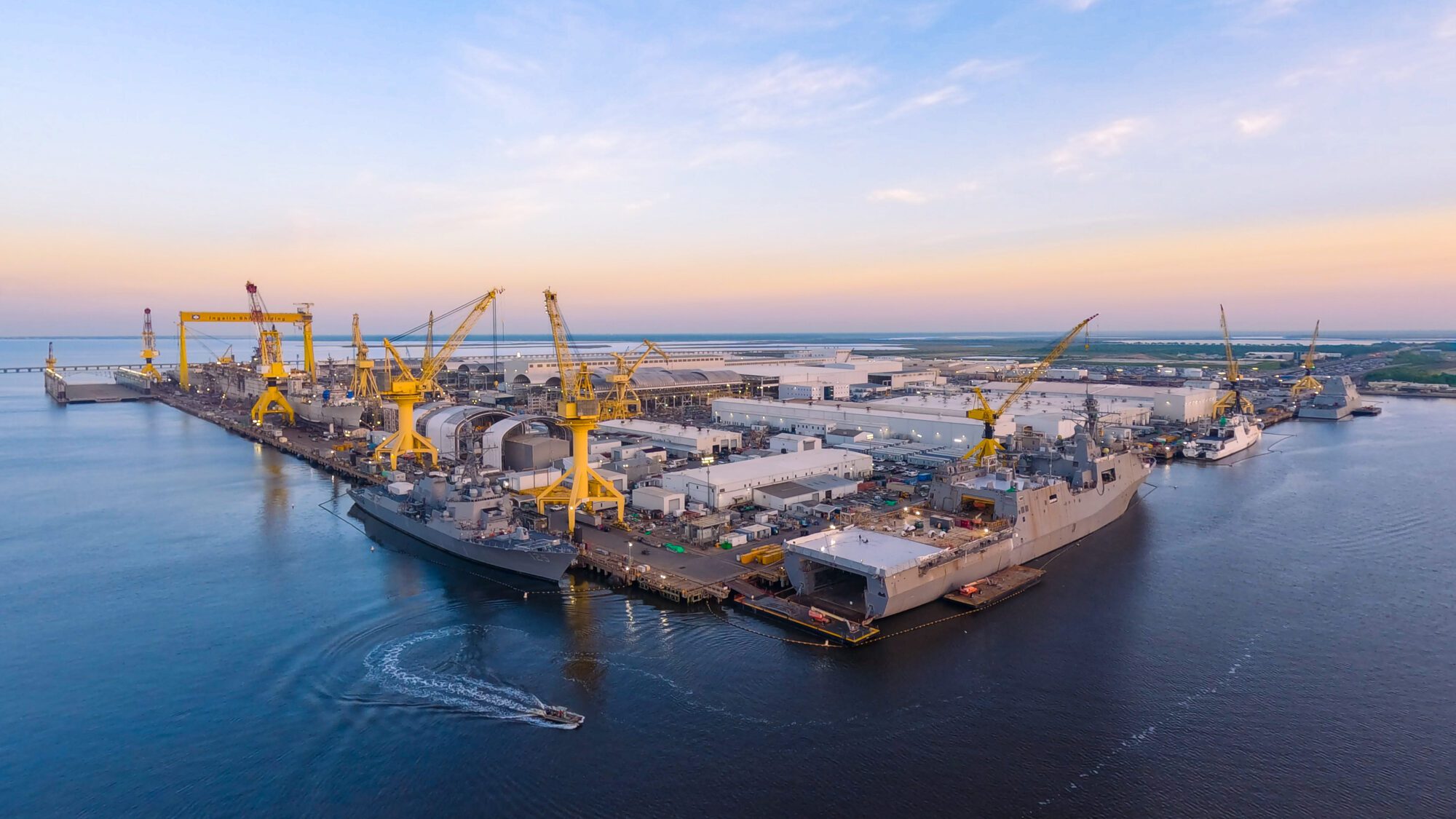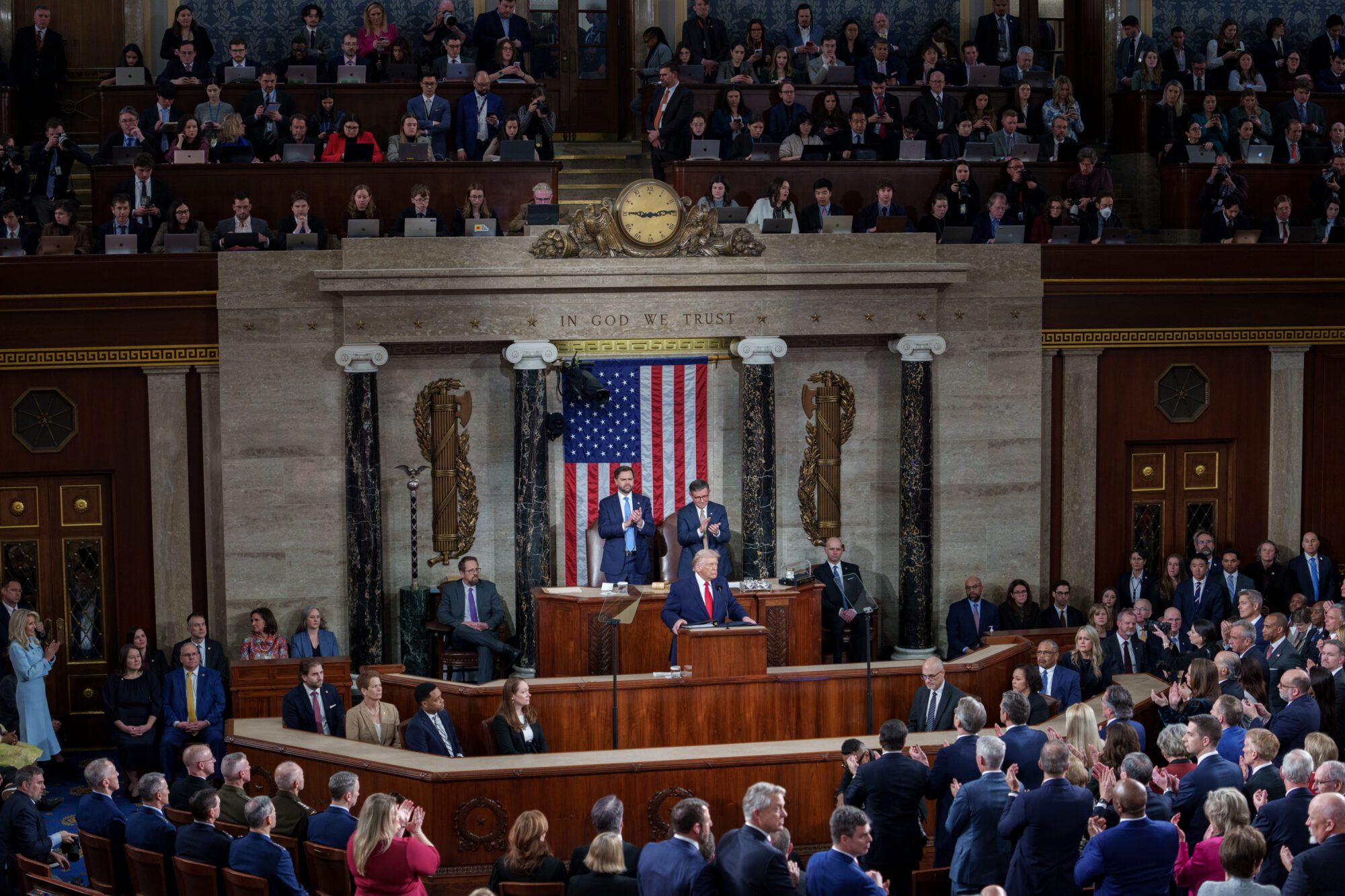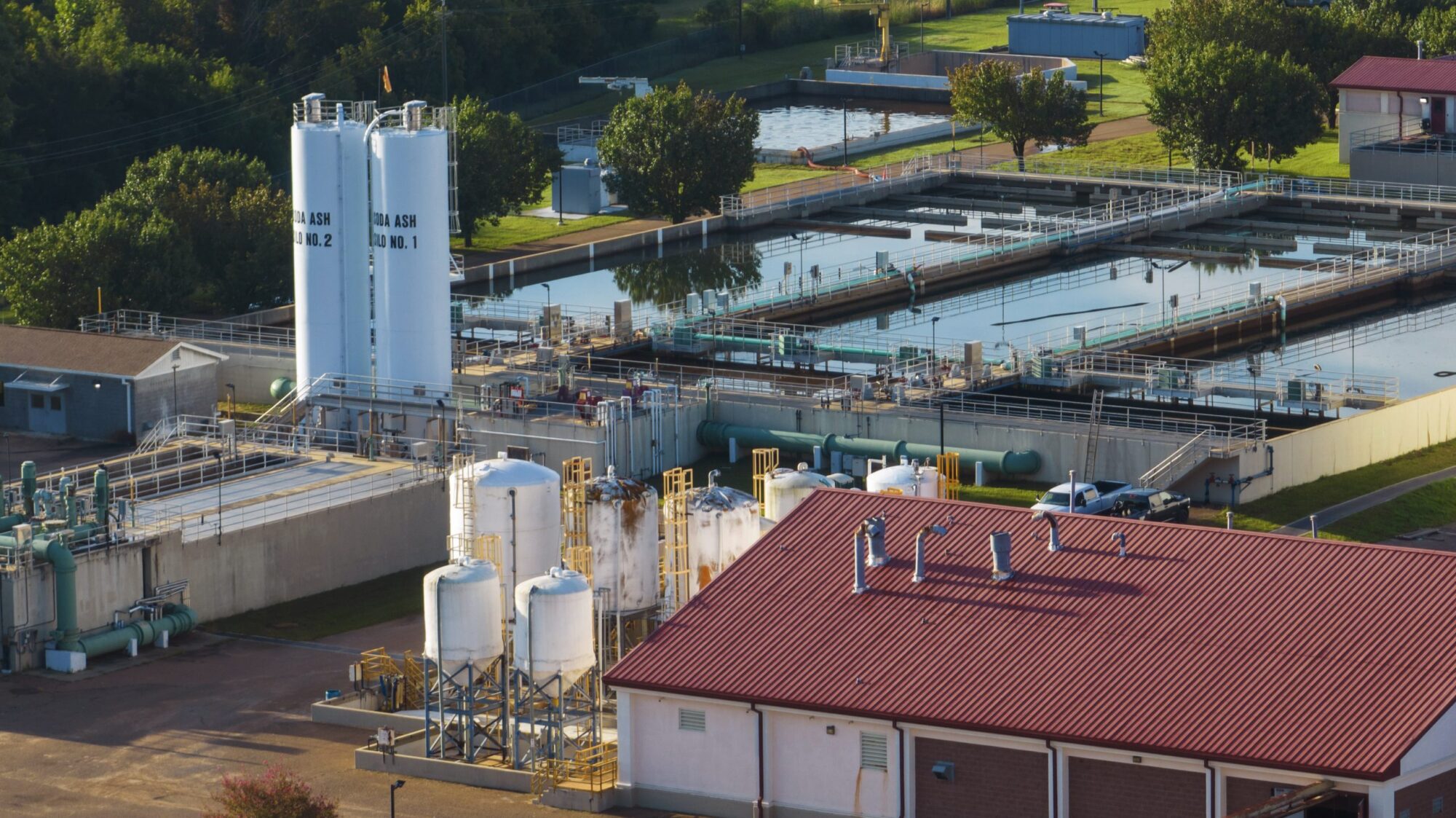
This is an aerial view of of the City of Jackson's O.B. Curtis Water Plant, Thursday, Sept. 1, 2022. (AP Photo/Steve Helber)
Despite a loss in population, Mississippi’s capital city has seen an increase in revenues, but those increases are outpaced by expenses.
On Monday, Mississippi State Auditor Shad White’s office provided an analysis of municipal audits prepared for the City of Jackson which raised further concerns about the city’s water system.
According to White, the State Auditor is legally prohibited from auditing cities, but his office can analyze municipal audits as they are filed.
The municipal audits analyzed by White’s office were performed over the last two decades for the capital city. As White says, they show a cause for concern regarding how the water system is financially supported.
Read the full analysis here.
“While my office is legally prohibited from auditing cities, cities like Jackson are audited by private CPA firms,” said State Auditor White. “We can, however, analyze the results of city audits. Our analysis of Jackson’s audits shows serious and fundamental financial issues that have to be straightened out. Every concerned taxpayer should be reading this report.”
Key Concerns
Jackson has seen a loss in population since 2003. Population has declined from over 202,000 residents at its peak in the 1980’s to just under 150,000 as of 2021. Despite the loss in population, the city’s revenue continues to increase. However, as Auditor White points out, those revenue increases are continually outpaced by spending.
Since 2003, revenue has increased 18% but Jackson’s expenditures have exceeded that mark many times. For example, a large jump in revenue went to the building of the convention center in 2008.
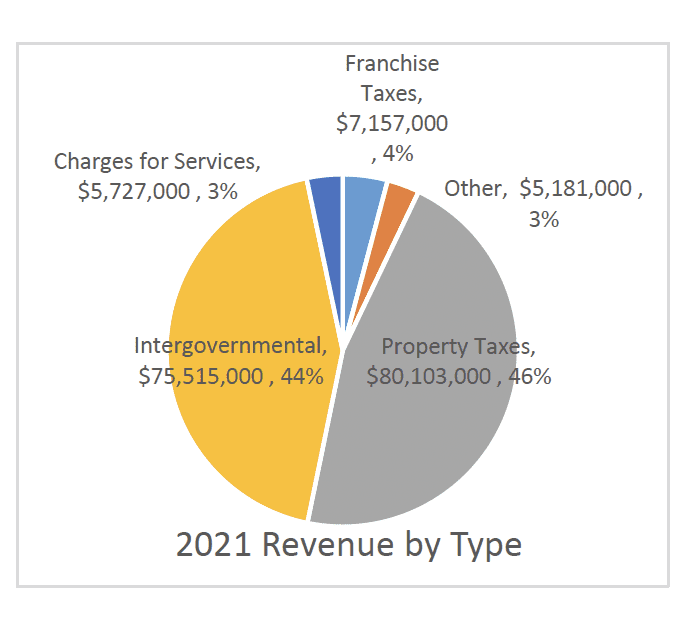
The city ended FY 2021 with a $19,504,591 deficit, the second largest in 19 years.
Property taxes, now being paid by less people, amount to the city’s largest source of income. That revenue went from just under $60,500,000 in 2003 to $80,103,000 in 2021 even though the population decreased.
Property taxes are also at a nineteen-year high.
“Explosion” of unpaid water bills
There has been an increase in water connections even though less residents are living in the capital city. The Auditor reported an “explosion” of unpaid water bills. The city’s audit report indicates that municipal officials expect many of the bills will never be paid.
“The city is not collecting all its water bills, and if it does not collect water bills, it does not have the revenue to fund day-to-day operations,” the analysis stated.
The Water and Sewer Fund expenses have almost doubled in the last 20 years, from $35,700,000 in 2003 to $60,800,000 in 2021. The true cost of running the city department has not increased significantly if looking at the rate of inflation. However, the system is bringing in far less revenue at a 23% decrease. Revenue collections for the system have not kept up to what is being provided since FY 2018.
The Auditor’s office determined the city was not properly collecting water bills by looking at the gross accounts receivable, or the bills owed. In the four years between FY 2018 to FY 2021, the amount of unpaid bills doubled from $42 million to over $94 million.
According to the Auditor, the report indicates the city seems to be providing free water to some customers. There were 4,211 new connections in 2021, despite continued population loss.
General Fund dollars and money from a settlement with Siemen’s are making up the difference. This is in an attempt to keep the water system functioning.
Getting its fiscal house in order
State Auditor White expressed the need for Jackson as the capital city to help generate growth but said it must first get its fiscal house in order.
“Jackson is our state’s capital, and we cannot have a strong state without a strong capital,” said Auditor White. “Cities in other Southern states, like Atlanta in Georgia or Birmingham in Alabama, are growing fast and fueling the economies of their states. Jackson can generate growth for Mississippi, but not until it gets its fiscal house in order.”
In a statement released by Mayor Chokwe Lumumba, he said the city’s finances were initially stretched because of the decision to hire Siemens Industry, Inc. Lumumba said that decision directly led to the current issues with the water billing. He mentioned that the Auditor’s analysis also did not take into account the $600 million in federal funds that Jackson was able to secure to address the city’s water infrastructure.
“The trends seen in the State Auditor’s analysis of Jackson’s audit are nothing new. In fact, these are trends that this administration has long since recognized and continues to address on a daily basis. Though we’ve never seen the State Auditor address the media regarding any other city’s audit, we appreciate that his ‘findings’ mirror what we’ve been saying for years,” said Mayor Lumumba.

Lumumba reiterated that saving residents money while providing valuable services are top priority for his administration.
“Sanitation is one of our city’s largest expenses which is why we’ve been so insistent on finding ways to keep our costs low. We appreciate the Auditor taking the time to review our finances. Though nothing new was uncovered, we understand that our city has a long way to go before we are financially sound,” said Lumumba.
